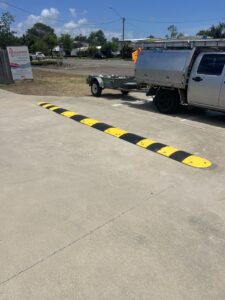
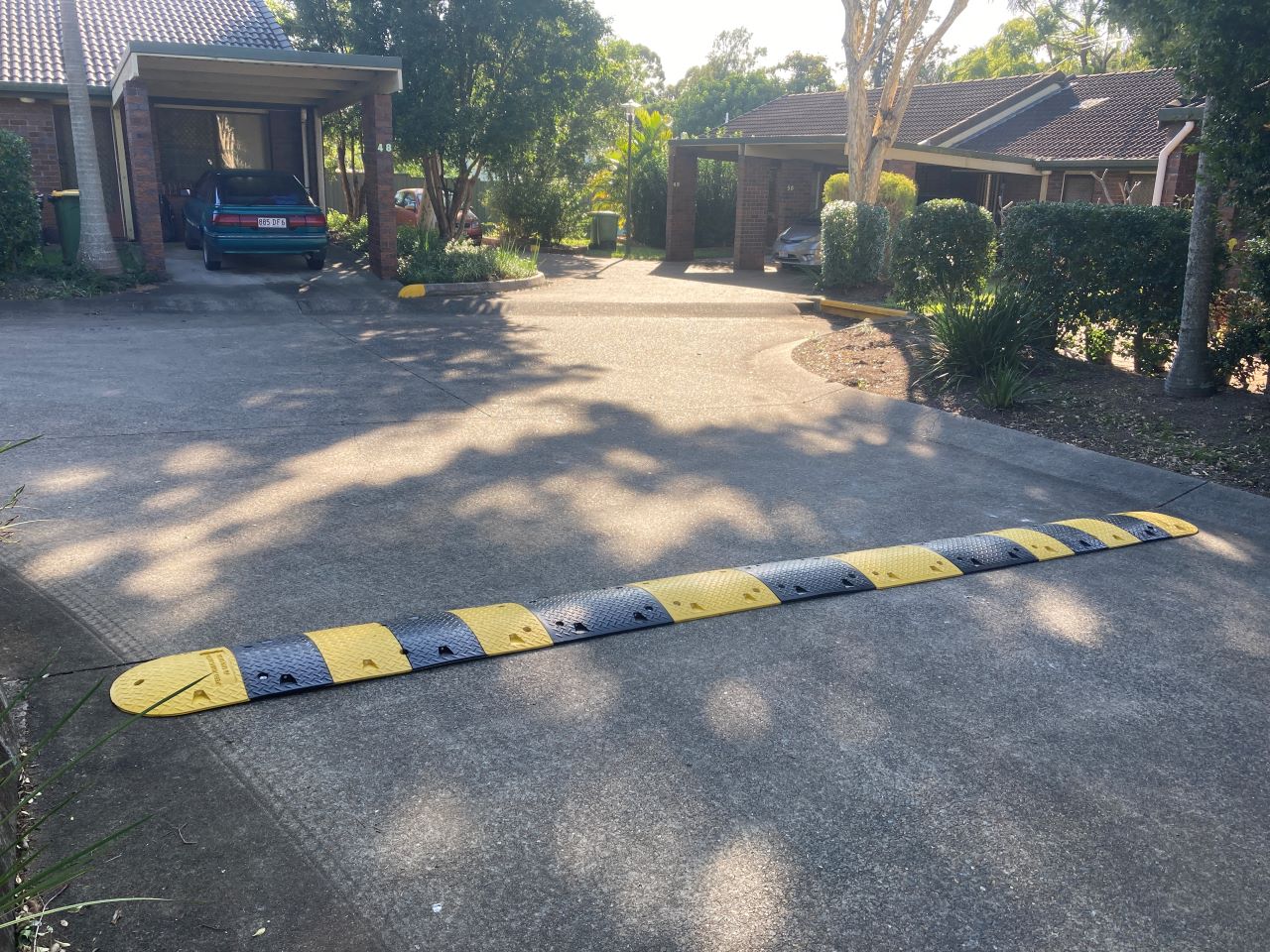
In Australia, ensuring civil safety products meet compliance standards is non-negotiable. Whether you are responsible for designing roads or managing parking zones, your choices must align with regulations set by authorities. This 2025 compliance checklist helps you ensure your civil safety products deliver both performance and adherence without compromise. We examine key focal points for speed humps, rumble bars, wheel stops and related infrastructure while integrating essential resources.
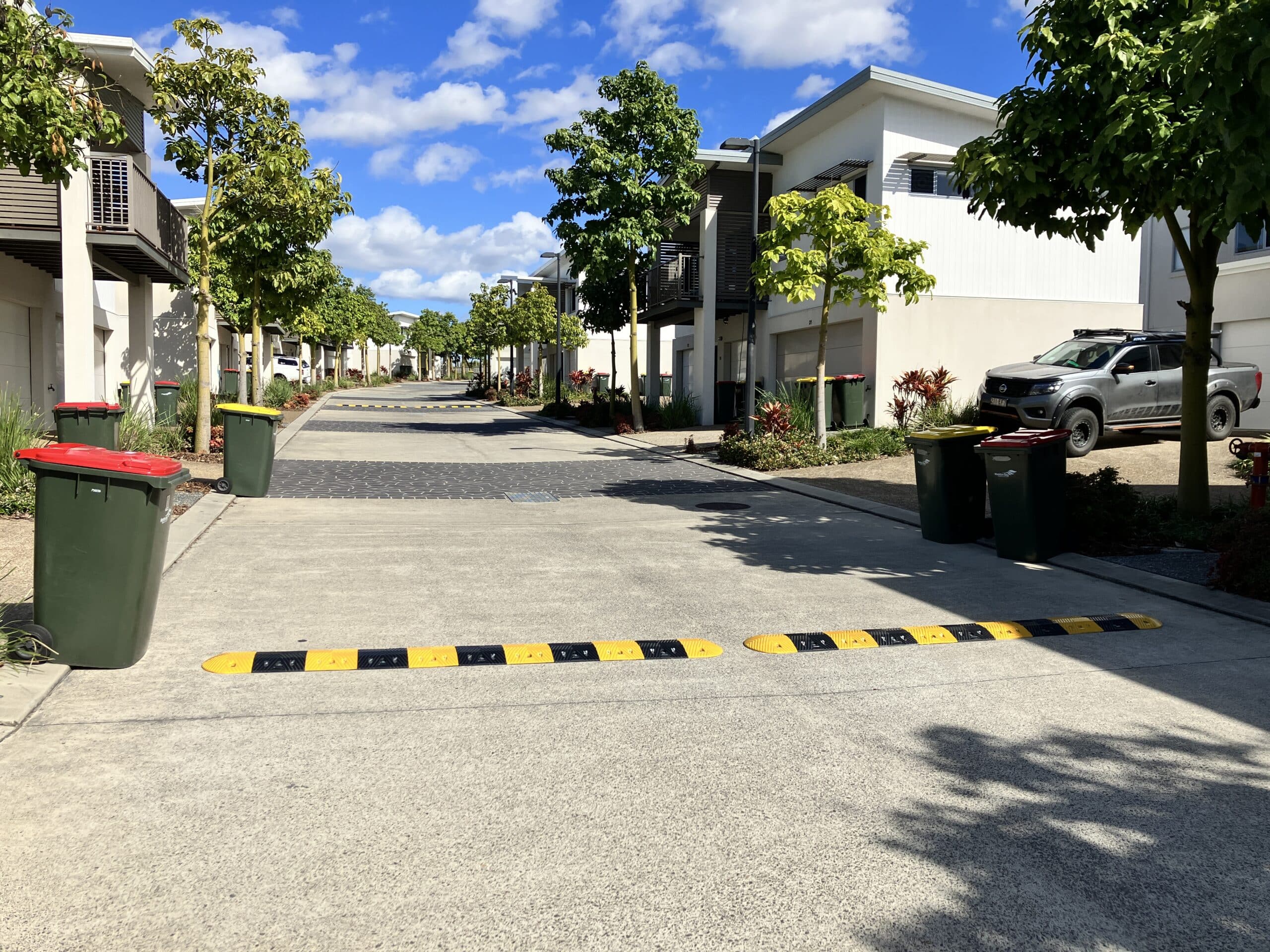
First and foremost, verify that all materials used in civil safety products are certified. For speed hump installations, material properties such as tensile strength, elasticity, UV resistance, and thermal tolerance determine long-term durability.
Likewise, rumble bars must withstand traffic loads while retaining road surface adhesion and reflectivity. For rubber rumble strips, ensure compliance with road authority standards.
Wheel stops must be made from high-resilience materials that resist weather and vehicular weight. For more details, you can view our wheel stop range.
Compliance also ensures that the physical design adheres to recommended dimensions. The objective of a speed hump is to reduce speed without damaging vehicles. For rumble bar parking guides, daily traffic volumes and vehicle speeds dictate their spacing and depth.
Wheel stops in parking bays must align with compliance guidelines, which specify a maximum height of 100 millimetres.
Civil safety products must be visible day and night. All speed humps should feature bright markings.
Rumble bars need reflectors or embedded studs. For wheel stops, place reflective tape on roadside edges.
Compliance includes correct placement relative to pedestrian crossings, driveways, speed zones and property access points. For speed humps, ensure they are at least 50 metres from intersections.
If installing rumble bars, ensure they are not within 10 metres of sensitive zones. Wheel stops must be aligned so they do not obstruct pedestrian movement.
Proper drainage design is critical. When installing speed humps, ensure water can pass around without pooling. Use permeable base products for rumble strips.
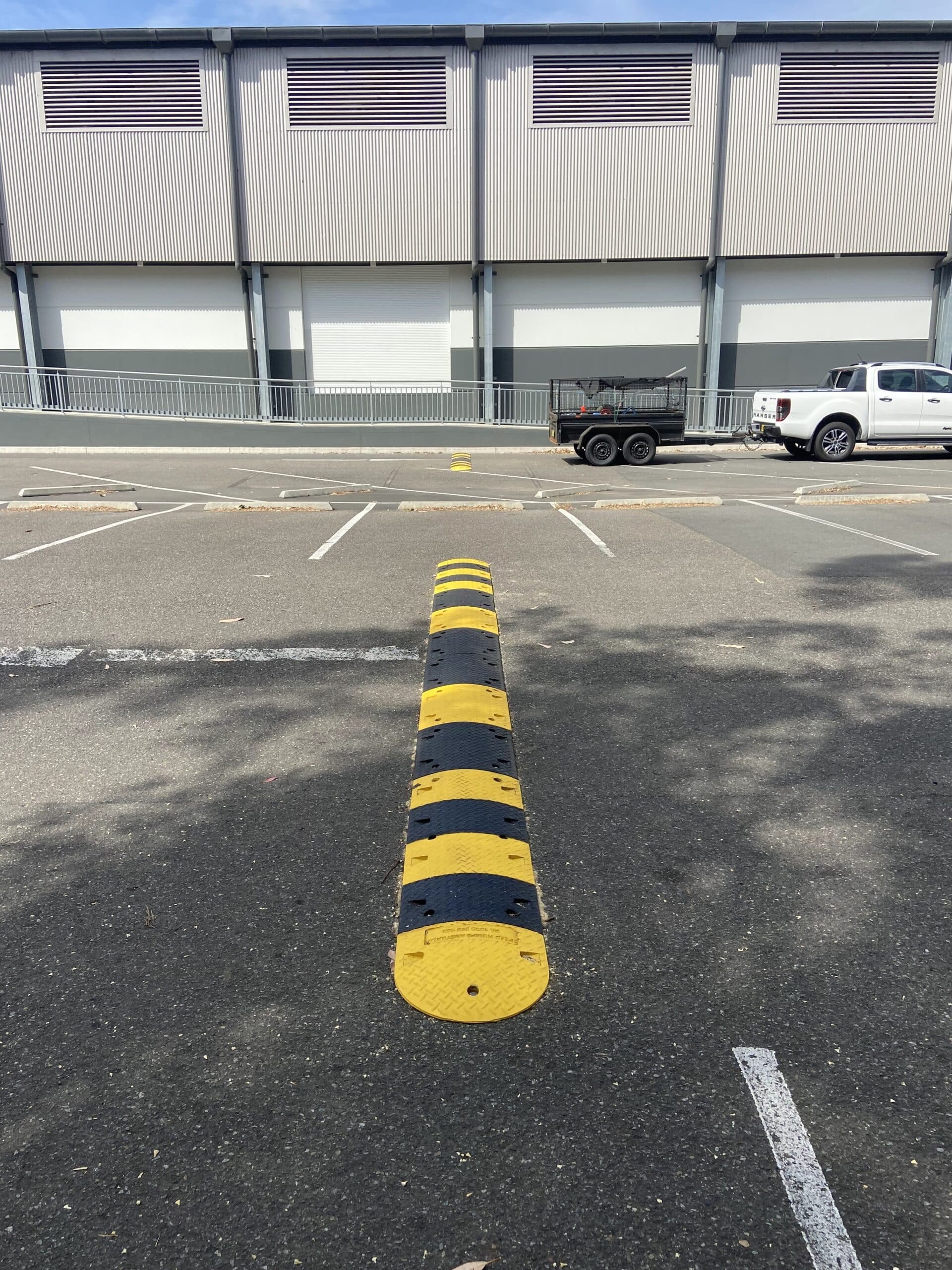
Australian regulation dictates that speed humps should be preceded by signage. For rumble strips, signs are required if they exceed 15 millimetres in depth.
A compliant product is only as good as its installation. Ensure the speed humps are installed using the correct fixings for their application.
Rumble strips typically adhere using high-bond adhesives. Wheel stops are usually anchored into concrete or asphalt.
Regular inspection schedules are essential. For speed humps, inspect for cracks or loose fixings every six months. Rumble bars may wear out more quickly under heavy traffic. Wheel stops should be checked for movement or structural damage every quarter.
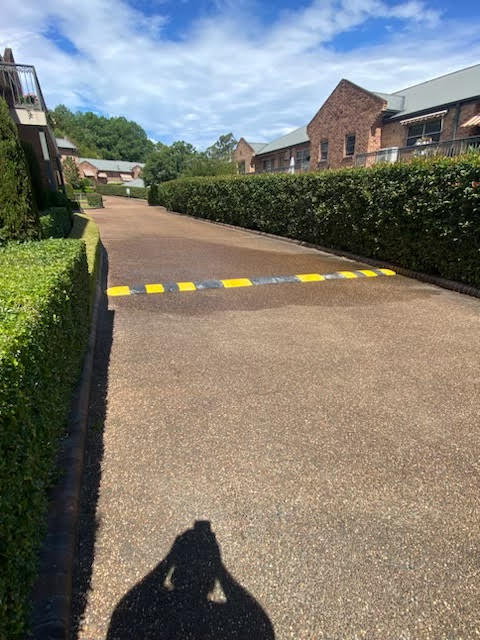
Sustainability is now a compliance factor. Speed humps that use recycled rubber from end-of-life tyres can deliver both performance and compliance. Recycled rubber rumble strips help reduce landfill.
You need purchase orders, installation logs, maintenance records, warranty details and certificates of compliance. Speed humps and rumble bars from trusted manufacturers simplify this process.
Provide installation training for staff and awareness for end users. Public awareness campaigns for speed humps, rumble bars and wheel stops improve compliance outcomes.
If you have questions or would like to discuss site-specific requirements or obtain a quote, please get in touch with us through our contact page.



For 10 years, our focus has been on one thing: to provide one style of product and to do it well.
Our wheel stops, speed humps and rumble bars meet Australian Standards, don’t fade, and we’ve never needed to replace one.

For 10 years, our focus has been on one thing: to provide one style of product and to do it well.
Our wheel stops, speed humps and rumble bars meet Australian Standards, don’t fade, and we’ve never needed to replace one.